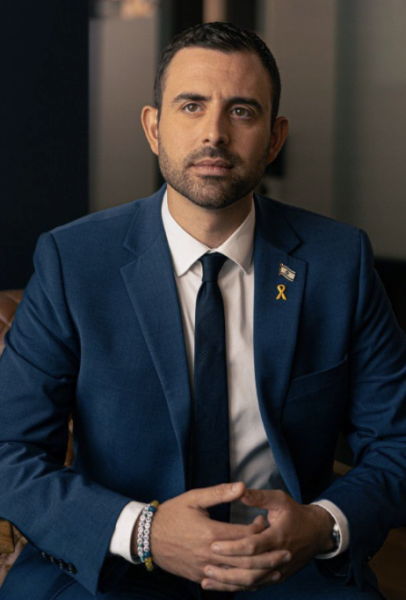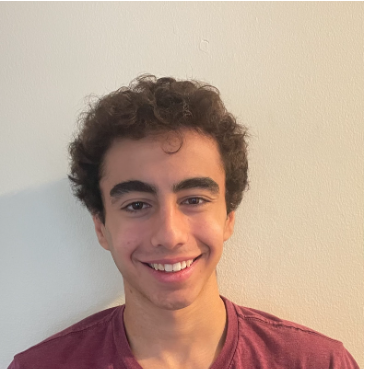In recent months, accusations of genocide and claims of famine in Gaza have fueled global criticism of Israel. Milken students say these charges have made it more difficult to navigate how Israel is portrayed in the media, especially as antisemitism continues to rise.
Camryn Benafsheha ’27 recalled driving past “protesters with signs about starving Gazans” over the summer. She speculated that these demonstrations are often filled with uninformed or misinformed people.
Mr. Gabriel Meyerson, Senior Israel Coordinator at Milken, stressed the need for balance when evaluating sources. “Hamas has long controlled information out of Gaza,” he said, “ [but] not everything that comes out of there is completely fabricated.”
Nevertheless, some students argue that misleading allegations against Israel fuel antisemitism.
Tobin Negrin ‘28 said that because “most people immediately associate Israel with Judaism,” criticism of Israel often turns into “oh, that’s the Jews—they did something bad.”
These students maintain that misinformation and biased reporting make it difficult to navigate conversations about Israel, highlighting a broader challenge the nation faces in defending itself in the media. In turn, the entire diasporic Jewish community confronts a difficult question: Is Israel doing a good enough job presenting itself on the world stage?
Figures central to Israel’s public relations reckon with this challenge every day. Mr. Eylon Levy served as an official spokesperson for the Israeli government and is now an independent leading advocate for Israel. He said that the nation’s fight in the media is unique.
“Every nation makes its case to the world,” said Levy, but he pointed out that Israel’s situation is singular because it is “targeted by a global network of movements that want to destroy this country.”
According to Levy, “Hasbarah” (which means “explanation” in English and is used to describe Israeli foreign diplomacy) is “about shoring up Israel’s legitimacy when it is constantly under attack.”
He said this challenge is especially difficult because Israel’s opponents don’t just accuse it of committing crimes’ They claim that “Israel itself is a crime.”
Compounding the communication problem, Israel was without an English speaking spokesperson from March, 2024 to March, 2025. “Israel does not do a good enough job of articulating its points or articulating its perspectives,” said Mr. Meyerson.
Levy concurred: “There is so much more this country can be doing” for the Hasbarah effort.

However, while Meyerson and Levy argue for an Israeli focus on stronger messaging, Benafsheha maintains that “Israel’s priority should be protecting Israel and its civilians.”
“The world will always have something against Jewish people,” she said. She said that taking on Hasbarah and combatting antisemitism is more of an “American responsibility on our end outside of Israel.”
(This view, it’s worth noting, is prevalent among both government officials and citizens in Israel, too, as the nation is so preoccupied with an intense multifront war it feels its global standing is less critical.)
In addition, it’s important to consider that Israel may also simply be surrounded by a much larger, and biased, media force.
“We are vastly outnumbered, outgunned, and outfinanced,” said Levy.
In the end, Milken students and Jews abroad are already part of the Hasbarah fight, carrying their connection to Israel wherever they go and speaking up when they can. However, they are still left wondering if the onus of defending their homeland in the court of public opinion is on them or on the Israeli government.
As we look to the future, Levy says that the best “immunization we have against the narrative war against Israel is being deeply embedded in the global economy.” The goal, as he sees it, is that Israel not “make itself liked, but …make itself needed.”




